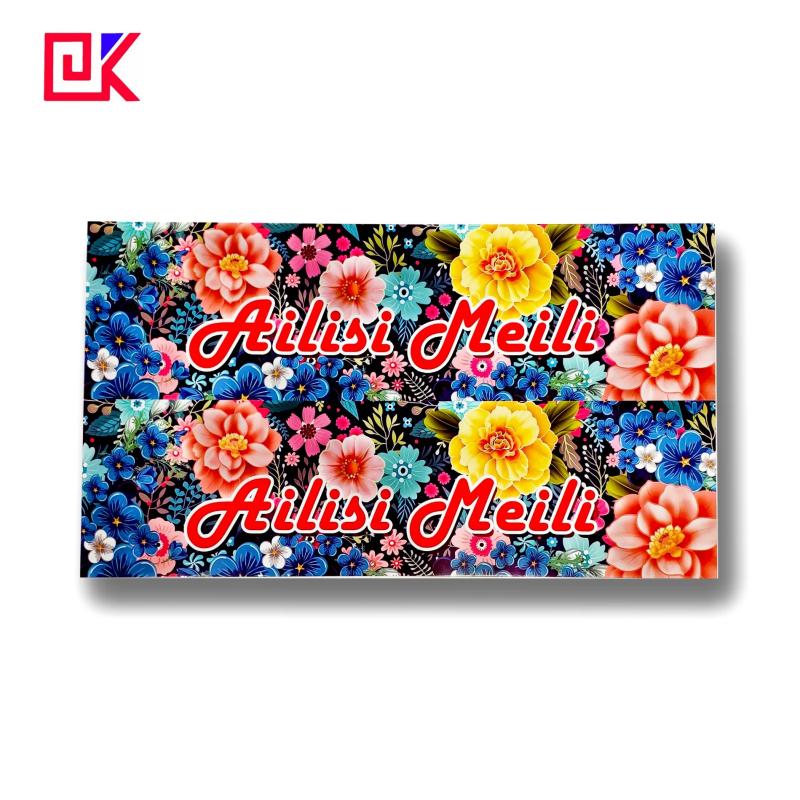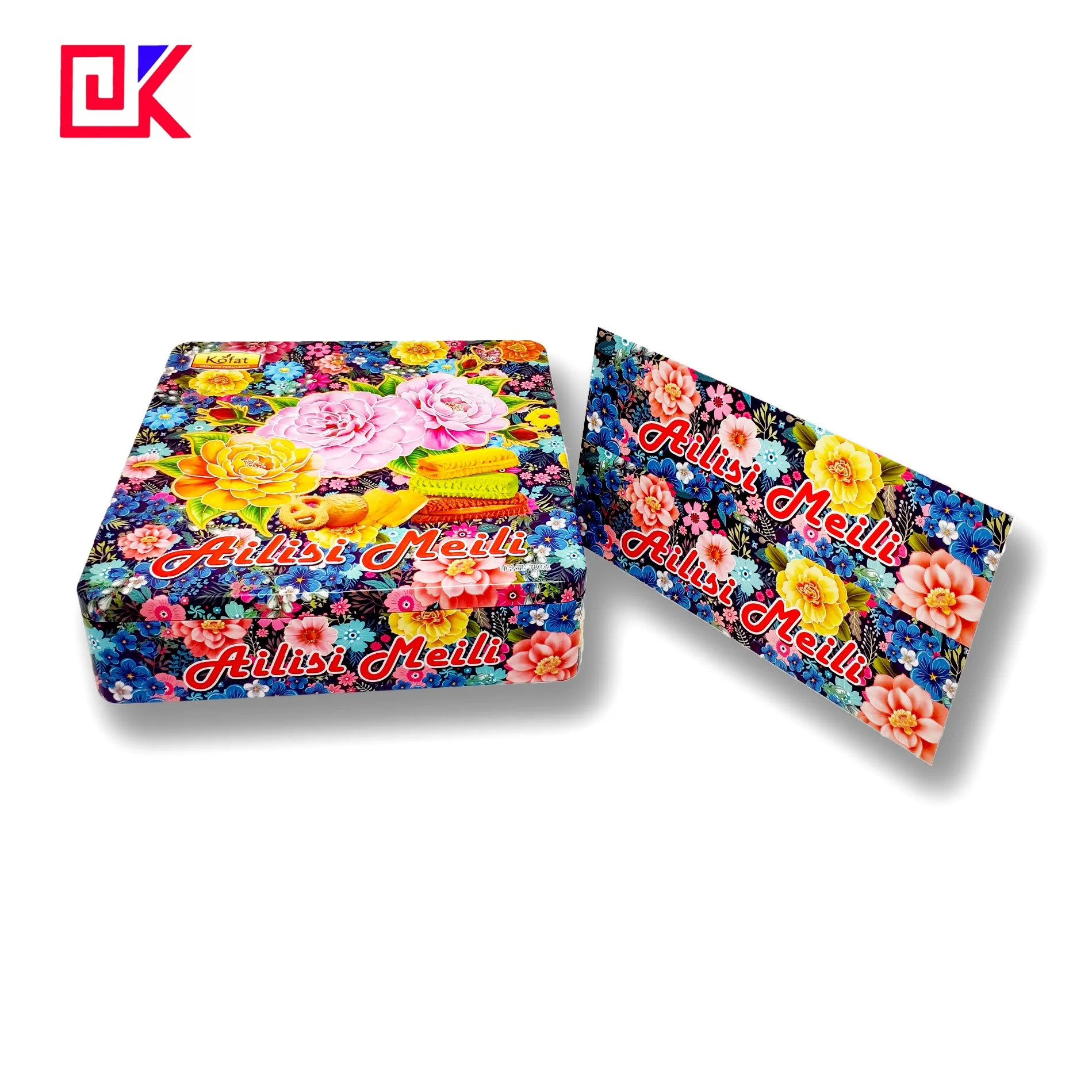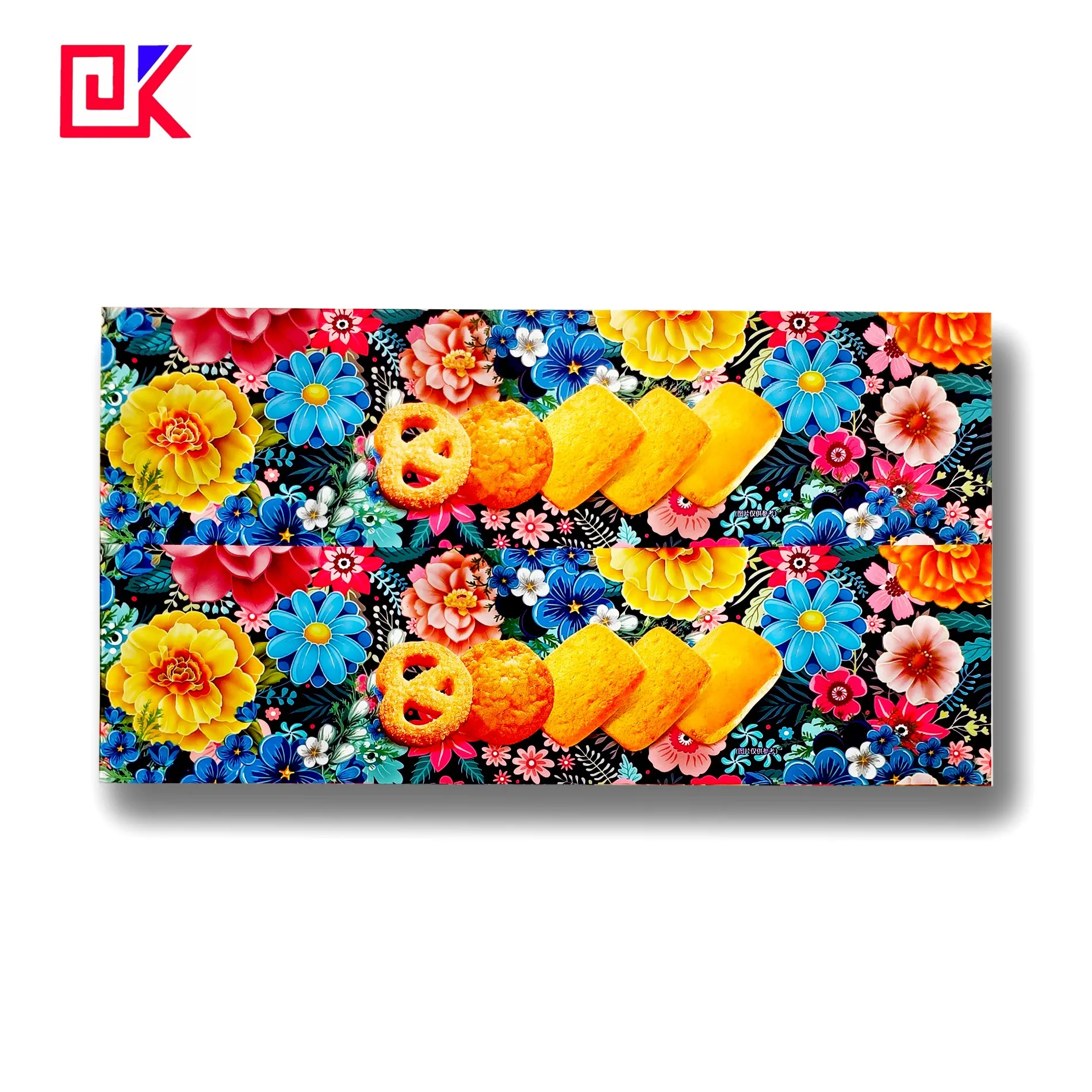Tinplate packaging occupies an important position in the food industry, especially canned food. It is widely used in food packaging for its good sealing, anti-corrosion, and convenient transportation and storage characteristics. Tinplate food cans have gradually become the preferred packaging material for canned food because of their tight sealing and long shelf life. However, many consumers still have questions about this form of packaging, such as "What is tinplate? Will the printed pattern on the can be harmful to health?" These doubts deserve in-depth discussion. This article will answer these questions through a comprehensive analysis to help consumers better understand the safety of tinplate food cans.

Why is tinplate packaging often used for canned food?
Tinplate, whose main component is low-carbon steel, has a tin-plated surface and has anti-corrosion and antioxidant properties. Due to the presence of the tin-plated layer on its surface, tinplate food cans can not only effectively isolate air and moisture, but also prevent the can from rusting, which helps to extend the shelf life of food. Therefore, tinplate food cans have become an ideal packaging choice for canned food.
Why are tinplate food cans so popular?
The characteristics of tinplate food cans are mainly reflected in their sealing, corrosion resistance and mechanical strength. The reasons why tinplate food cans are often used for canned food packaging can be summarized as follows:
1. Superior sealing performance: Tinplate food cans use a highly sealed process, which can not only effectively block air from entering the can and prevent food from being oxidized, but also ensure the freshness of the food.
2. Corrosion resistance: The surface of the tinplate food can is plated with a layer of tin, which plays a role in rust prevention. Even in a humid environment, it can protect the integrity of the can body and prevent the contents from direct contact with the metal.
3. Strength and durability: The steel substrate of the tinplate food can has good mechanical strength and impact resistance, and is not easy to deform or damage during transportation and storage. Therefore, it is very suitable for food that needs to be stored for a long time.

Does the printed pattern affect the safety of canned food?
Many consumers are concerned about the patterns printed on the surface of tinplate food cans, fearing that these pigments or chemicals will penetrate into the cans and affect the safety of food. So, does the printed pattern pose a threat to food safety?
1. Will the printing pigments penetrate into the food?
The printing process on tinplate food cans generally adopts "offset printing" technology, which uses pigments specially designed for food packaging and is produced under strict regulations and quality standards. Modern tinplate food cans are mostly printed with environmentally friendly inks and coatings, which have passed food safety tests and meet relevant standards.
In addition, after printing, a polymer coating is applied to the surface of the tinplate food can. The main function of this coating is to prevent the food in the can from contacting the can wall, thereby isolating the effect of the printing pigments on the food. Therefore, the printed pattern of the tinplate food can will not penetrate into the food and will not affect the quality and safety of the food.
2. Is the chemical composition of the tinplate printing coating safe?
The coating of the printed pattern of the tinplate food can is made of coating materials that meet the standards of food contact materials and are strictly controlled during production and use. These coating materials will not release harmful substances or volatile compounds during heating and sealing, so there is no need to worry about the safety of the coating even for canned foods that have been sterilized at high temperatures.
Does high temperature sterilization of canned food have any effect on tinplate food cans?
Many canned foods are sterilized at high temperature after canning to ensure that the microorganisms inside the food are killed, thereby extending the shelf life of the food. Will high temperature sterilization affect the physical properties of tinplate food cans and even endanger food safety?
1. What effect does the high temperature sterilization process have on the structure of tinplate food cans?
High temperature sterilization is a food sterilization technology that usually puts cans in a high temperature environment of about 121°C for 15-30 minutes. Tinplate food cans are suitable for canned food packaging because the melting points of their steel substrates and tin coatings are much higher than the sterilization temperature, which can keep the structure of the can stable and will not deform or break.
During the sterilization process, the tin coating of the tinplate food can will not melt or oxidize, so no harmful substances will be produced. After sterilization, the tinplate food can still maintain good sealing and corrosion resistance, and continue to provide effective protection for the food inside.
2. Does high temperature sterilization affect the safety of the inner coating of tinplate food cans?
During the sterilization process, the polymer coating on the inner wall of tinplate food cans can also remain stable. These coatings are specially designed for food packaging and will not decompose or release harmful components at high temperatures. This means that even after high temperature sterilization, the inner wall coating of tinplate food cans is still safe and will not pose a threat to the food in the can.
Will the long storage time of canned food affect the tinplate food cans?
Canned food generally has a long shelf life, and some can even be stored for several years. So will the safety of tinplate food cans be affected during long-term storage?
1. Will tinplate food cans rust during storage?
The surface of tinplate food cans is coated with a layer of tin, which can effectively isolate moisture in the air and prevent steel from rusting. At the same time, the coating on the inner wall can further isolate the contact between food and metal. Therefore, under normal storage conditions, tinplate food cans generally do not rust.
It should be noted that if canned food is subjected to drastic changes in the external environment during storage, such as extreme high temperature or humidity changes, the can body may be affected. Therefore, canned food should avoid long-term storage in a high temperature and humid environment. It is recommended to store it in a cool and dry place to ensure the integrity of the tinplate food can.
2. Will long-term storage cause tinplate food cans to release harmful substances?
Under standardized production and storage conditions, tinplate food cans will not release harmful substances. The tin coating and inner wall coating of tinplate food cans can effectively prevent direct contact between food and metal, avoiding the risk of food contamination. Even if canned food is stored for many years, the anti-corrosion coating in the can can still maintain a good protective effect.

How to identify safe tinplate food canned food?
Although most tinplate food canned foods have undergone rigorous safety testing, consumers can still use some simple methods to judge whether the cans are safe when purchasing canned foods.
1. Observe the appearance of the can body
When purchasing canned food, the first thing to do is to observe the appearance of the can body. The surface of high-quality tinplate food cans is smooth and rust-free, and the printed patterns are clear without falling off or discoloration. If you find obvious dents, rust spots or damage on the outer wall of the can, you should avoid buying it to prevent food contamination.
2. Check the can seal
Sealing is the key to canned food. Consumers can carefully check whether the seal of the can is tight and complete. If you find that the can mouth is loose, leaking or dented, such a can is likely to have lost its sealing effect, and the food inside may have deteriorated. It is recommended not to buy it.
3. Pay attention to the production date and shelf life
Although tinplate food canned food has a long shelf life, consumers still need to pay attention to the production date and shelf life when purchasing, and avoid buying cans that are close to the shelf life to ensure the freshness and taste of the food.
Foshan Dekai Metal Packaging Co., Ltd. (DKtinplate) stands out as a reliable supplier of tinplate products and metal packaging solutions. Located in the heart of China’s manufacturing hub, we offer advanced printing, aerosol can production, and customizable packaging at low prices. Our factory’s annual production exceeds 300 million units, supported by cutting-edge equipment and ISO-certified processes. Whether you’re sourcing for wholesale purchases or customized designs, DKtinplate ensures competitive quotes and promotional quotes discounts. Contact us today to secure high-quality packaging for your business.

